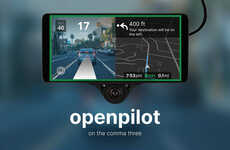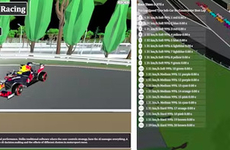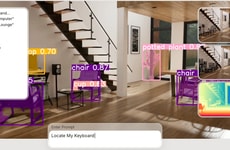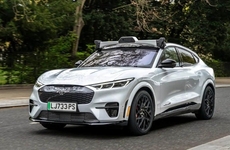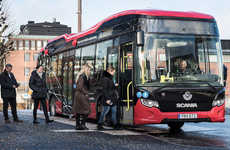
Udacity is Open Sourcing Its Virtual Driving Simulator
References: github & techcrunch
Udacity, the coding education program, has recently open sourced its software for virtual test-driving tracks, which gives coders anywhere the opportunity to test self-driving software.
It might sound almost sarcastically futuristic, but self-driving cars undergo rigorous testing in virtual environments before hitting the real-world roads. Since autonomous vehicles use software to recognize their surroundings and drive appropriately, they can be tested in virtual environments with nearly the same efficiency as in the real world. Udacity's virtual self-driving tracks were developed for its nanodegree program on self-driving cars, since students wouldn't be able to test a real car.
By open sourcing the track software, Udacity allows programmers from around the world to approach the problem of autonomous vehicles — regardless of whether they have the material resources to actually put a self-driving vehicle prototype on the road.
It might sound almost sarcastically futuristic, but self-driving cars undergo rigorous testing in virtual environments before hitting the real-world roads. Since autonomous vehicles use software to recognize their surroundings and drive appropriately, they can be tested in virtual environments with nearly the same efficiency as in the real world. Udacity's virtual self-driving tracks were developed for its nanodegree program on self-driving cars, since students wouldn't be able to test a real car.
By open sourcing the track software, Udacity allows programmers from around the world to approach the problem of autonomous vehicles — regardless of whether they have the material resources to actually put a self-driving vehicle prototype on the road.
Trend Themes
1. Virtual Autonomous Vehicle Simulations - Virtual simulations provide a safer and more efficient way to test self-driving software and could accelerate the development of this technology.
2. Open Source Self-driving Software - Open sourcing self-driving software makes it more widely available and affordable to developers, increasing the potential for innovation in the industry.
3. Remote Programming for Self-driving Cars - As self-driving cars require software to operate, remote programming provides opportunities for individuals and companies to contribute to autonomous vehicle development from anywhere.
Industry Implications
1. Automotive Manufacturing - Developing virtual simulations can allow automotive manufacturers to more rapidly and cost-effectively test self-driving technologies before deploying them in vehicles.
2. Tech - The open sourcing of software related to autonomous vehicles creates opportunities for tech companies to develop new applications and services leveraging self-driving technology.
3. Education - The availability of virtual self-driving tracks and open source software allows educators to provide training and resources on autonomous vehicle development to students around the world.
2.9
Score
Popularity
Activity
Freshness



